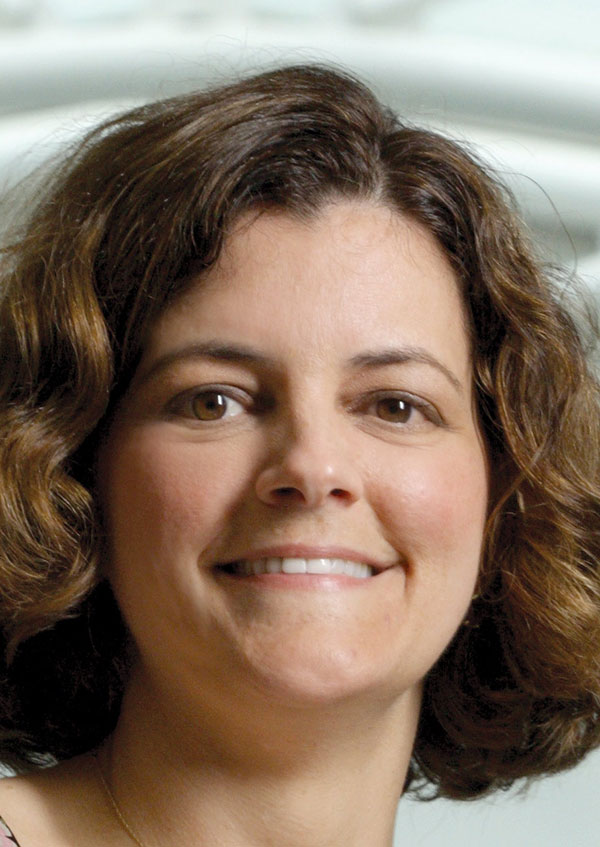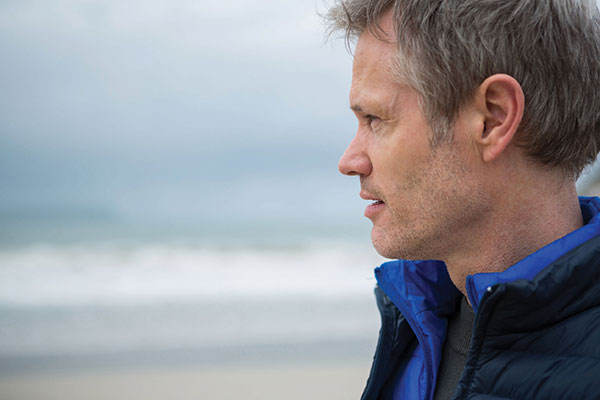Finding Calm in the Midst of Chaos
by Ashley Varner, MSW, MBA, OSW-C
A cancer diagnosis is almost always unexpected. The words “You have cancer” understandably provoke feelings of fear and confusion, and a sea of questions floods your mind: “What’s going to happen to me?” “What do I need to do?” “How will this affect my family?” It may feel as if your life is spinning out of control, but now is not the time to panic. Instead, consider these concrete approaches to gaining (or regaining) a sense of control.
Take a deep breath.
In fact, take several. Deep breathing interrupts the fight-or-flight adrenaline response to stress. By taking just a moment to breathe deeply, you may find that your heart rate slows slightly and your body feels a little less tense. You may also find that you are better able to focus your attention. Practicing deep breathing at bedtime can even help you sleep better.
Make a list of questions you want to ask.
Fear, anxiety, and confusion abound when you have unanswered questions running circles in your mind. Write down your questions, prioritize them, and take your list with you to your medical appointments so you’re sure not to forget any when you’re speaking with your treatment team. The old adage “There are no stupid questions” has never been more true than when you’re facing cancer. You may learn that some of your questions have no easy answer, but even gaining that knowledge can be helpful.
Arm yourself with resources and coping tools that have worked for you during difficult situations in the past.
Remember what has helped you through other challenges.
This is a powerful way to affirm your ability to manage your current situation. It also allows you to arm yourself with resources and coping tools that have worked for you during difficult situations in the past.
Be wary of the internet.
It can be tempting to dive into the internet in search of answers. The challenge is deciphering what’s relevant, accurate, and up to date. Much of the information you’ll come across on the internet is inaccurate or not applicable to your unique situation. Many cancer survivors recommend staying off the internet all together or only visiting trusted sites, such as the National Cancer Institute’s cancer.gov and the American Cancer Society’s cancer.org.
Enlist the support of friends and family.
Consider telling your friends and family what you’re going through and letting them know specifically what they can do to help. For some people, reaching out to friends and family can be hard, but opening up to others and letting them know your needs can provide you with the help you need while strengthening your relationships.
Get some exercise.
Moving the body provides an outlet for nervous energy and promotes the production of feel-good endorphins. Although your schedule is likely very full, with doctor’s appointments tacked on to your everyday duties, walking or engaging in some other type of low-impact exercise may help you focus during the day and give you a sense of inner peace. Remember to talk with your doctor before starting an exercise routine.
Maintain a balanced diet.
When you feel stressed, it’s normal to lose your appetite and eat very little or, on the other side of the spectrum, to crave and indulge in comfort foods. However, fluctuating blood sugar can make you more prone to feeling anxious. Eating several small meals a day can go a long way toward toning down your anxious feelings and helping you feel more in control.
Stay hydrated.
Even mild dehydration can affect your mood. Be sure to drink plenty of water, and avoid alcoholic and caffeinated beverages, both of which can contribute to dehydration and anxiety.
Be patient with yourself and with others.
We were never taught the best way to respond to a cancer diagnosis. It’s normal to feel uncertain and scared when you or a loved one is facing cancer. Simply remember to take things one moment at a time, and remind yourself that you have faced tough challenges before and you’ll be able to handle this one as well.

Ashley Varner is a clinical oncology social worker with the Piedmont Cancer Center in Atlanta, GA. She is completing her doctorate in social work at the Catholic University of America in Washington, DC, with the help of a grant from the American Cancer Society.
This article was published in Coping® with Cancer magazine, November/December 2018.


